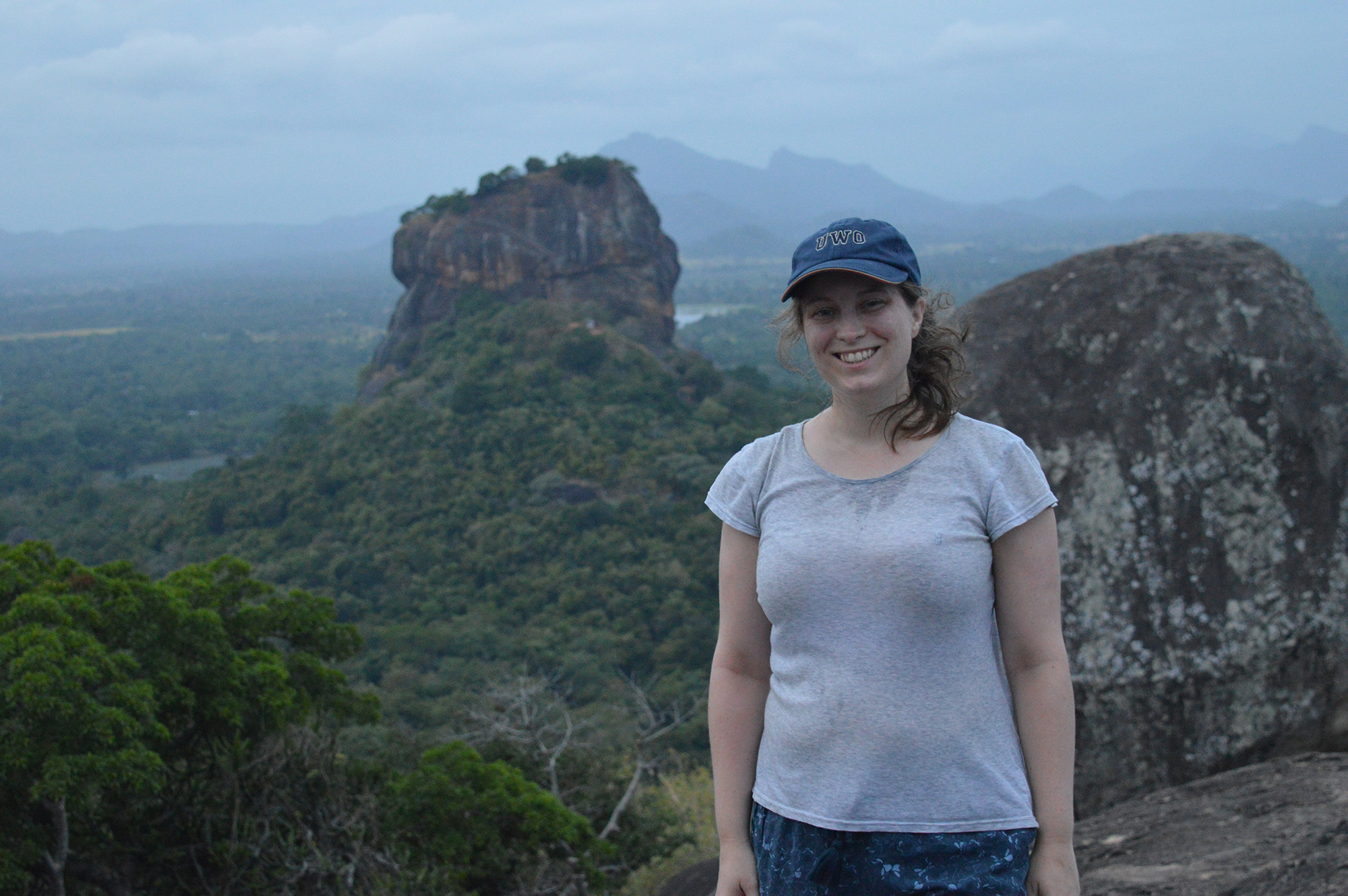Submitted? by Sabrina Nemis –
The sky was getting light and I was going to miss the sunrise. My friends had powered on ahead, one of them taking the steps two at a time.
I was on an early morning hike because this summer I’d travelled from Ottawa, Canada to Colombo, Sri Lanka as a volunteer with Uniterra, a volunteer cooperation and development program implemented by World University Service of Canada (WUSC) and the Centre for International Studies and Cooperation (CECI), and funded by Global Affairs Canada.

During the fall and winter months, I’m a Master of Journalism student at Carleton University, but this past summer I applied my journalism studies background to support the economic empowerment of youth and women in Sri Lanka as a Uniterra Students Without Borders intern. I was getting hands on communications experience to complement my studies. More importantly though, I was working with an organization I believed in.
On our trip to Pidurangala, we stayed with a Sri Lankan family who run a small guesthouse. Iresha, the daughter of the family, picked us up from the bus stop in a jeep and served us rice and curry for lunch. On the morning of the hike, she was the only one hanging back to wait for me as I struggled my way up the small mountain.
Iresha is one of the few women working in tourism and hospitality in Sri Lanka. Although the tourism industry is one of the fastest growing sectors in the country, women hold only 25 per cent of the jobs. Despite the many opportunities for employment, most women will not even apply, as many families worry that if their daughters work in tourism, they will not be safe or they will be associated with the sex trade.
Those working for Uniterra believe that economic growth, when inclusive, is the most powerful driver of poverty reduction. The focus of the work in Sri Lanka is in the tourism and textile sectors. They work with local partners to enhance the income of poor and marginalized women and youth by facilitating better access to employment and income-earning opportunities.
As a communications and documentation intern, part of my work with Uniterra was to highlight positive examples of women successfully working in the tourism sector and share their stories in an effort to improve cultural perceptions. The more we could show people that women would be safe and empowered through employment in the tourism sector, the more women might take advantage of all the new positions opening up across the country.
“Almost there,” Iresha called out. The steps were snaking along a huge rock face and I did not believe her. A few minutes later we came to a plateau. There was a large brick Buddha, partly covered in plaster. She told me it had been partly destroyed by looters looking for jewels hidden inside.
My friends were not here and we kept walking forward. The flatness ended abruptly with boulders and large painted arrows. This was not the straight, clear path of the stairs. The arrows and trash left behind by tourists were the only sign people had hiked here before.
Iresha began to climb between and over the boulders. I paused before following her. We were far up and I was terrified of falling.
My time in Sri Lanka could be like this too. There were easy moments when I was travelling with my co-workers, meeting women working in the tourism sector, eating curry, and chatting late into the night. But other times, I found myself struggling with the unending heat or trying to find my way around. What I had learned was that pushing through the scary parts was the only way forward.
The sky was not pink with dawn yet, so I knew I hadn’t missed the sunrise. I leaned forward, placed my hands on the boulders and used my legs to propel myself over the rock. I would not fall, I would not break any bones (or my camera) and I would not plunge to my death. This was not the day.
I was slow. I struggled. I crawled over the rocks a few times. Iresha waited for me.
The hardest part of doing my work was gaining access. I relied almost entirely on my Sri Lankan coworkers to introduce me to female hotel owners or get me into garment factories—another industry we worked with to improve women’s financial situations. I learned to depend not only on myself, as I often do in Canada, but on the people around me.
The last rock to climb was the hardest. There were no shortcuts and my hands were slippery with sweat. I tossed my camera bag up ahead of me, forcing myself to drag my body up and onto the ledge. Then I rolled up off the ground and stood straight. I had made it.
There were too many clouds to see the sunrise. Everyone but me was disappointed. The thick clouds allowed me to be part of this moment as we took in the beauty all around us.
Since Uniterra began in 2004, it has sent more than 6,000 volunteers to work with more than 400 organizations in 14 countries. For more information about Uniterra and to view the current volunteer opportunities available, visit Uniterra.ca or email info@uniterra.ca.